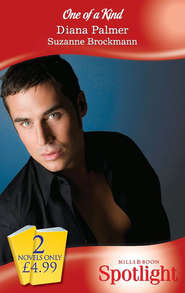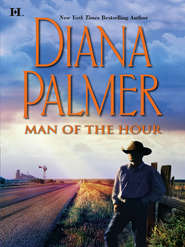По всем вопросам обращайтесь на: info@litportal.ru
(©) 2003-2024.
✖
After Midnight
Автор
Год написания книги
2018
Настройки чтения
Размер шрифта
Высота строк
Поля
“Then you aren’t living in the real world.”
She gave him a killing glare and walked out of the room. It was to her credit that she didn’t slam the door behind her.
Clayton watched her retreat with mixed emotions. Usually, Derrie agreed with him on issues. This time, she was fighting tooth and nail. It amused him, to see his little homebody of an assistant ready to scratch and claw.
The telephone rang and a minute later, Derrie’s arctic voice informed him that Ms. Watts was on the line.
“Hello, Bett,” he told the caller. “How are you?”
“Worn,” came the mocking reply. “I can’t see you tonight. I’ve got a board meeting, followed by a cocktail party, followed by a brief meeting with one of the senior senators, all of which I really must get through.”
“Don’t you ever get tired of lobbying and long for something different?” he probed.
“Something like giving fancy parties and placating political adversaries?” Bett asked sarcastically.
Clayton felt himself going tense. “I know you don’t like my sister,” he said curtly. “But a remark like that is catty and frankly intolerable. Call me back when you feel like rejoining the human race.”
He put the phone down and buzzed Derrie. “If Ms. Watts calls back, tell her I’m indisposed indefinitely!” he said icily.
“Does she like virgin forests, too?”
He slammed the phone down and took the receiver off the hook.
Clayton phoned Nikki that evening. He didn’t mention Bett’s nasty remark or his fight with Derrie, which had resulted in her giving him an icy good-night and leaving him alone with cold coffee and hot bills. He had to depend on his district director for coffee, and Stan couldn’t make it strong enough.
“I’m not going to be able to turn loose for at least two weeks,” he said sadly. “I’d love to spend some time with you before we get our feet good and wet in this campaign, but I’ve got too much on my plate.”
“Take some time off. Congress won’t be in session much longer.”
“I know that. I am a U.S. Representative,” he reminded her dryly. “Which is all the more reason for me to push these so-and-so’s into getting down here to vote when our bill comes up. I can’t leave.”
“In that case, don’t expect me to wail for you.”
“Would I? Anyway, you need the rest more than I do,” he said on a laugh. “How’s everything going?”
“Fine,” she said. “Nothing exciting. A big fish washed up on the beach…”
“I hope you didn’t try to save it,” he muttered. “You’re hell to take on a fishing trip, with your overstimulated protective instincts.”
“I let this one go,” she said, feeling vaguely guilty that she was keeping a secret from him. It was the first time, too. “It wasn’t hurt very badly. It swam away and I’ll never see it again.” That much was probably true.
“Well, stay out of trouble, can’t you?”
“Clay, I’ll do my very best,” she promised.
“Get some rest. You’ll need it when autumn comes and the campaigning begins in earnest.”
“Don’t I know it,” she chuckled. “Good night.”
“Good night.”
She hung up the phone and went to lounge on the deck, watching the whitecaps curl rhythmically in to the white beach. The moon shone on them and as she sipped white wine, she thought that she’d never felt quite so alone. She wondered what Mr. Lombard was doing.
Chapter Three
Kane Lombard was sitting on his own deck with a highball, thinking about Nikki. It had been a productive day. Most days were, because the job was everything to him. But now, as he contemplated the moonlight sparkle on the ocean, he felt unfulfilled.
He was thirty-eight years old. He’d had a wife, and a son. There had been a twelve-year marriage which, while not perfect, at least gave him a sense of security. At least he’d been in love when he married, even if things had gone sour a few years later. Now he was among the ranks of the single men again, but without the youth and idealism that made marriage a viable prospect. He was jaded and somewhere along the way, he’d lost all his illusions about people. About life. He was like those waves, he thought, being aimlessly thrown onto the beach and then forgotten. When he died, there would be nothing to leave behind, nothing to show that Kane Lombard had lived on this planet.
That wasn’t totally true, he chided himself as he swallowed a sip of the stinging highball. He had the company to leave behind. The name would probably be changed somewhere down the line, though. Names didn’t last long.
He leaned back on the chaise lounge and closed his eyes. Nikki. Her name was Nikki, and she had black hair and green eyes and the face of an angel. He liked the way she looked, the way she laughed, as if life still had wonderful things to offer. He knew better, but she made him optimistic. He needed someone like that.
Not permanently, of course, he told himself. He needed an affair. Just an affair. Would she be willing? She seemed to find him attractive enough. If he took her out and bided his time, would she be receptive? He sloshed the liquid in the glass, listening to the soft chink of the ice cubes against the watery roar of the ocean. Perhaps she was lonely, too. God knew, there was no monopoly on loneliness. Like the air itself, it permeated everything. His eyelids felt heavy. He closed them, just for a minute…
It was dawn when he woke, still lying on the chaise lounge, with the chill morning air in his face. The glass, long since forgotten, had fallen gently to the deck and was dry now, the ice and whiskey melted and evaporated on the wood floor. He got up, stretching with faint soreness. His head was much better, but there were still vestiges of a headache. He stared out over the ocean, and was jarred from his thoughts when the telephone rang.
His housekeeper was apparently in residence, because the ringing stopped, to be replaced by her loud, stringent voice.
“Telephone, Mr. Lombard!” she called.
“I’ll take it out here,” he returned gruffly.
She handed him the phone and he nodded curtly as he took it, waving her away. “Yes?” he asked.
“I’m Todd Lawson, Mr. Lombard,” a deep voice replied. “I work for your father and brothers in New York at the Weekly Voice,” he prompted when there was a long pause on the other end of the line.
Kane recognized the name. Lawson was his father’s star reporter, if a man who was better at creating news than gathering it could be called a journalist.
“Yes, I know you,” Kane said. “What do you want?”
“Your father sent me to Charleston to do a little prospecting. He wants me to see what I can find on the Republican U.S. Representative incumbent, Seymour. I’ve just checked into a hotel here. Any ideas about a good place to start looking for skeletons?”
“I can’t help you. I haven’t lived in Charleston long enough to know many people. I only know Seymour through the mails and the telephone,” he added curtly. “If I put a step wrong, he’ll be over me like tarpaper, I know that. We had a sewage leak a couple of weeks ago, accidental, and he’s been after my neck ever since. He went on television to point fingers at me as a perfect example of a money-hungry anticonservationist.” He shook his head. “He’s gungho on this industrial pollution issue. It’s his number one priority, they say.”
“Interesting that he’s fighting for the lumber bill out west,” Lawson murmured, tongue in cheek.
“The habitat of an owl out west apparently doesn’t do him as much political good as digging out industrial polluters on his doorstep.”
“You said it.”
“Keep me posted, will you?”
“You bet.”
He put down the receiver. Seymour was an odd bird, he thought. The man had little material wealth, but his old Charleston heritage had helped put him in office. The backing of Senator Mosby Torrance hadn’t hurt, either. The junior U.S. senator from South Carolina was a personable man with an equally impeccable reputation, even if he had a failed marriage behind him. Mosby’s marriage had been very brief, Kane understood, and rather secretive, but that had been because of his bride’s tender age, his sources told him. He couldn’t quite remember, but it seemed that there had been some connection with the Seymours before that. He’d have to remember and tell Lawson. It wasn’t important enough to try to reach the reporter, even if he knew where to look. No matter. Lawson would call back.
In the campaign headquarters of Sam Hewett, candidate for the Democratic nomination to the U.S. House of Representatives for the district that included Charleston, South Carolina, a heated discussion was taking place between Hewett and his advisers.











